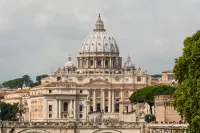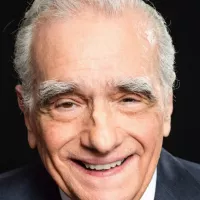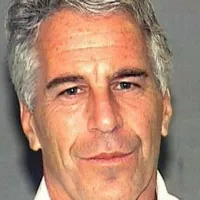Eritrea, officially the State of Eritrea, is a country located in the Horn of Africa, East Africa. Asmara serves as its capital and largest city. It shares borders with Ethiopia to the south, Sudan to the west, and Djibouti to the southeast. The country has a long coastline along the Red Sea, including the Dahlak Archipelago and parts of the Hanish Islands. Eritrea's total area spans approximately 117,600 square kilometers.
1911: Eritrean Railway Completion
The Eritrean Railway was completed to Asmara in the highlands in 1911.
1913: Emperor Menelek II Death
Emperor Menelek II of Shewa who ruled from 1889 died in 1913.
1922: Mussolini Rise to Power
In 1922, Benito Mussolini's rise to power in Italy brought profound changes to the colonial government in Italian Eritrea.
1931: Italian census population
According to the 1931 Italian census, there were 4,188 Italians out of the 600,573 inhabitants in Eritrea.
1932: Eritrean Railway Construction Completion
The Eritrean Railway was completed in 1932.
1935: Art Deco in Asmara
After 1935, art deco architecture was widely employed in Asmara.
1936: Manufacturing Plants
Many small manufacturing plants established between 1936 and 1945 were forced to close due to intense competition from factories in Europe and the Middle East.
1937: Opening of Cinema Impero
The Art Deco Cinema Impero opened in 1937.
1939: Factories Employment
In 1939, there were approximately 2,198 factories and most of the employees were Eritrean citizens.
1941: Eritrea population with Italians
In 1941, Eritrea had approximately 760,000 inhabitants, including 70,000 Italians.
1942: Eritrea under British Military Administration
In 1942, Italian rule ended and Eritrea was placed under British Military Administration during World War II.
1945: End of Economic Boom and Start of Recession
The Eritrean economy faced recession and depression shortly after the conflict concluded in 1945, impacting the urban population.
1946: First Tour of Eritrea
The Tour of Eritrea was first held in 1946.
1947: Peace Treaty
After the peace treaty with Italy was signed in 1947, the United Nations sent a Commission of Enquiry to decide the fate of the colony.
December 1950: Adoption of U.N. Resolution 390A(V)
In December 1950, following the adoption of U.N. Resolution 390A(V), Eritrea was federated with Ethiopia under the prompting of the United States.
1950: Arrival of UN Commission of Enquiry
In early 1950, the United Nations Commission of Enquiry arrived in Eritrea to submit its report.
1950: British Administration Continues
The British administration of Eritrea continued until 1950 in the absence of agreement amongst the Allies concerning the status of Eritrea.
1952: UN Decision on Eritrea's Governance
Following a UN General Assembly decision in 1952, Eritrea was to govern itself with a local Eritrean parliament, while entering into a federal status with Ethiopia for foreign affairs and defense for ten years.
1955: No Sightings of Elephants
Between 1955 and 2001 there were no reported sightings of elephant herds.
1957: Adoption of Ethiopian Penal Code
In 1957, Eritrea adopted the Ethiopian penal code during independence, which punishes failure to enlist in the military or refusal to perform military service with imprisonment.
1958: Eritrean Liberation Movement Founded
In 1958, a group of Eritreans founded the Eritrean Liberation Movement (ELM).
1958: Opening of University of Asmara
The University of Asmara, the oldest in the country, was opened in 1958.
1960: Life expectancy at birth
In 1960, life expectancy at birth in Eritrea was 39.1 years.
September 1961: Eritrean Liberation Front Waged an Armed Struggle
On September 1, 1961, the Eritrean Liberation Front (ELF), under the leadership of Hamid Idris Awate, waged an armed struggle for independence.
1961: Formation of the Eritrean Liberation Front
In 1961, the Eritrean secessionist movement organised the Eritrean Liberation Front.
1962: Emperor Haile Selassie dissolved the Eritrean parliament
In 1962, Emperor Haile Selassie unilaterally dissolved the Eritrean parliament and annexed the territory.
1962: Ethiopia Formally Annexes Eritrea
In 1962, the government of Ethiopia annulled the Eritrean parliament and formally annexed Eritrea.
1978: Final closure of the Eritrean Railway
In 1978, the Eritrean Railway experienced its final closure.
1978: Inoperative railway linking Agordat and Asmara
The railway linking Agordat and Asmara with the port of Massawa had been inoperative since 1978.
1984: Ethiopian census population recording
In 1984, the Ethiopian census, recorded Eritrea's population at 2,621,566.
1991: Eritrea Gained De Facto Independence
Eritrea gained de facto independence in 1991 after the Eritrean War of Independence.
1991: EPLF defeated the Ethiopian forces
In 1991, the Eritrean People's Liberation Front (EPLF), defeated the Ethiopian forces in Eritrea and helped a coalition of Ethiopian rebel forces take control of the Ethiopian capital Addis Ababa.
May 1993: Eritrea Admitted into the United Nations
On 28 May 1993, Eritrea was admitted into the United Nations as the 182nd member state.
1993: Eritrea's Independence and Provincial Arrangement
At the time of Eritrea's independence in 1993, the country was arranged into ten provinces, similar to the nine provinces during the colonial period.
1993: National Assembly Elections and Afwerki's Election
In 1993, 75 representatives were elected to the National Assembly in Eritrea, while the rest were appointed. The National Assembly then elected Isaias Afwerki as Eritrea's first president.
1993: Eritrea Gains De Jure Independence
In 1993, Eritrea gained de jure independence after an independence referendum.
1993: Afwerki President
President Isaias Afwerki has been in office since independence in 1993.
1993: Eritrea's independence
The 1984 Ethiopian census was the last census conducted in Ethiopia before Eritrea's independence in 1993.
1993: Independence Referendum
The name Eritrea was reaffirmed by the 1993 independence referendum.
October 1994: Stripping of citizenship from Jehovah's Witnesses
In October 1994, Jehovah's Witnesses were stripped of their citizenship and basic civil rights by presidential decree in Eritrea.
1994: Reopening of stretch in Massawa
In 1994, an approximately 5-kilometre stretch of railway was reopened in Massawa.
1995: Underweight children prevalence
From 1995 to 2002 the prevalence of underweight children in Eritrea decreased by 12%.
1995: Institution of Compulsory Military Service
In 1995, compulsory military service was instituted in Eritrea, requiring conscripts to serve a minimum of 18 months.
1995: Maternal mortality data
Maternal mortality in Eritrea dropped by more than half from 1995 to 2002.
1995: National Service Proclamation
The National Service Proclamation of 1995 in Eritrea does not recognize the right to conscientious objection to military service.
1996: Consolidation into Six Regions
In 1996, the ten provinces of Eritrea were consolidated into six regions (zobas) with boundaries based on water catchment basins.
1997: Constitution Reaffirms Eritrea
The name Eritrea was reaffirmed by the 1997 constitution.
1997: Tourism's Contribution to Economy
Tourism made up 2% of Eritrea's economy up to 1997.
May 1998: Outbreak of Hostilities with Ethiopia
In May 1998, deadly rivalry between Eritrea and Ethiopia led to the outbreak of hostilities.
1998: Decline in Tourism Revenue
After 1998, revenue from tourism in Eritrea fell to one-quarter of 1997 levels.
1998: Reductions in malarial mortality and cases
Between 1998 and 2006, the National Malaria Protection Unit of the Ministry of Health registered reductions in malarial mortality by as much as 85% and in the number of cases by 92%.
1998: Conflict with Ethiopia begins
In 1998, the nation's human rights record has been criticized by the United Nations after Eritrea conflicted with Ethiopia.
1998: Indefinite National Service
Since 1998, during times of "national crisis", everyone under the age of 50 in Eritrea is enlisted in national service for an indefinite period.
1999: Railway length in Eritrea
As of 1999, there were 317 kilometres of narrow gauge rail line in Eritrea.
1999: Publication of "Multilingualism and Nation Building: Language and Education in Eritrea"
In 1999, Hailemariam, Chefena; Kroon, Sjaak; and Walters, Joel published "Multilingualism and Nation Building: Language and Education in Eritrea" in the Journal of Multilingual and Multicultural Development.
1999: Discovery of Paleolithic Site
In 1999, a Paleolithic site with stone and obsidian tools dated to more than 125,000 years old was discovered near the Gulf of Zula south of Massawa.
June 2000: End of Hostilities with Ethiopia
In June 2000, the hostilities between Eritrea and Ethiopia concluded.
September 2001: Arrest of G-15
In September 2001, a group of fifteen Eritreans, called the G-15, were arrested after publishing an open letter calling for democratic dialogue.
December 2001: Observation of Elephant Herd
In December 2001, a herd of approximately 30 elephants, including 10 juveniles, was observed in the vicinity of the Gash River.
2001: Petroleum Consumption
In 2001, annual consumption of petroleum in Eritrea was estimated at 370,000 tons.
2001: Conflict with Ethiopia ends
In 2001, the nation's human rights record has been criticized by the United Nations after Eritrea conflicted with Ethiopia.
2001: Banning of Independent Media
Independent media have been banned in Eritrea since 2001.
2001: Imprisonment of Dawit Isaak
Since 2001, journalist Dawit Isaak has been imprisoned by Eritrean authorities without legal process.
May 2002: Government recognition of religious institutions
Since May 2002, the government of Eritrea has officially recognized the Eritrean Orthodox Tewahedo Church, Sunni Islam, the Eritrean Catholic Church, and the Evangelical Lutheran church.
2002: Prevalence of underweight children
From 1995 to 2002 the prevalence of underweight children in Eritrea decreased by 12%. Severe underweight prevalence decreased by 28%.
2002: International tourism receipts
In 2002, the World Tourism Organization calculated Eritrea's international tourism receipts at US$73 million.
2002: Maternal mortality data
Maternal mortality in Eritrea dropped by more than half from 1995 to 2002.
2003: Reopening of Eritrean Railway section
In 2003, after independence, the first rebuilt section of the Eritrean Railway was reopened.
2003: No local elections
Since 2003 no local or regional elections have been held.
2003: Inaugural year for Eritrea Institute of Technology
The Eritrea Institute of Technology began with approximately 5,500 students during the 2003–2004 academic year.
2004: No local elections
Since 2004 no local or regional elections have been held.
2004: Inaugural year for Eritrea Institute of Technology
The Eritrea Institute of Technology began with approximately 5,500 students during the 2003–2004 academic year.
2005: Rejection of Foreign Aid
Since 2005, Eritrea has rejected foreign aid, aspiring to be self-reliant and seeing aid as a hindrance to economic development.
2006: Reductions in malarial mortality and cases
Between 1998 and 2006, the National Malaria Protection Unit of the Ministry of Health registered reductions in malarial mortality by as much as 85% and in the number of cases by 92%.
2006: Walking Away from Foreign Aid
In 2006 alone, Eritrea walked away from US$200 million in foreign aid and also refused a US$100 million loan from the World Bank.
2006: Eritrea Announces Protected Zone
In 2006, Eritrea announced that it would become the first country in the world to turn its entire coast into an environmentally protected zone.
2006: Public Meetings and Dialogues on Human Rights
In 2006, Eritrean government officials and NGO representatives participated in public meetings and dialogues to discuss fundamental questions about human rights.
2006: Tourism's Contribution to GDP
In 2006, tourism made up less than 1% of Eritrea's GDP.
2007: Ban on Female Genital Mutilation
In 2007, the Eritrean government banned female genital mutilation.
2008: WHO average life expectancy
In 2008, the World Health Organisation (WHO) found average life expectancy in Eritrea to be slightly less than 63 years.
2008: Afwerki's Interview with Al Jazeera
In a 2008 interview with Al Jazeera, President Isaias Afwerki stated that Eritrea might wait decades before holding elections.
2009: Massawa to Asmara section of Eritrean Railway available
As of 2009, the section of the Eritrean Railway from Massawa to Asmara was fully rebuilt and available for service.
2009: UN Criticism of Human Rights
By 2009, there were widespread and systematic torture and extrajudicial killings in Eritrea, leading the UN to criticize the nation's human rights record.
2009: Formation of Citizens for Democratic Rights
In 2009, a movement called Citizens for Democratic Rights in Eritrea was formed to create dialogue between the government and political opposition.
2010: Men's cycling team wins gold
Between 2010 and 2022, the Eritrean men's cycling team has won gold eight times in the African Continental Cycling Championships.
2010: Local Government Elections
In 2010, Eritrea held local government elections.
January 2011: Appointment of Envoy to the AU
Since January 2011, the Eritrean government has appointed Tesfa-Alem Tekle as an envoy to the African Union.
2011: Nabro Volcano Eruption
In 2011 Nabro Volcano had an eruption.
2011: Local Government Elections
In 2011, Eritrea held local government elections.
2011: Ethiopia Accuses Eritrea of Bombing Plot
In 2011, Ethiopia accused Eritrea of planting bombs at an African Union summit in Addis Ababa.
2012: Retrieval of "Multilingualism and Nation Building: Language and Education in Eritrea"
On 2012-04-04, the article "Multilingualism and Nation Building: Language and Education in Eritrea" was retrieved.
2013: Women's team gold medal
In 2013, the Eritrean women's team won the gold medal in the African Continental Cycling Championships for the first time.
2013: Economic Growth Attributed to Mining Operations
In 2013, the pickup in economic growth in Eritrea had been attributed to the commencement of full operations in the gold and silver Bisha Mine by Canadian Nevsun Resources (now Chinese Zijin Mining).
2014: Peak GDP Growth
In 2014, Eritrea reached a peak GDP growth of 30.9%.
2015: Cyclists compete in Tour de France
In 2015, Daniel Teklehaimanot and Merhawi Kudus became the first cyclists from Africa to compete in the Tour de France.
2015: Major outflow of emigrants
In 2015, Eritrea experienced a major outflow of emigrants attributed to conditions and long durations of conscription in the Eritrean Army.
2015: Ghirmay Ghebreslassie wins gold at World Championships
In 2015, Ghirmay Ghebreslassie became the first Eritrean to win a gold medal at a World Championships in Athletics for his country by winning the marathon.
2015: Eritrean diaspora as primary tourists
In 2015, sources indicated that most tourists in Eritrea were members of the Eritrean diaspora.
2015: Women's team gold medal
In 2015, the Eritrean women's team won the gold medal for the second time in the African Continental Cycling Championships.
2015: Archiving of "Multilingualism and Nation Building: Language and Education in Eritrea"
In 2015, the original PDF of the article "Multilingualism and Nation Building: Language and Education in Eritrea" was archived.
June 2016: UN Report on Human Rights Violations
In June 2016, a United Nations Human Rights Council report accused the Eritrean government of extrajudicial executions, torture, indefinitely prolonged national service, and forced labour.
2016: Annual visitors count
As of 2016, Eritrea's annual visitor count was 142,000.
2016: GDP Growth
Between 2016 and 2019, Eritrea had a GDP growth between 7.6% and 10.2%, down from the peak at 30.9% in 2014.
July 2017: Asmara listed as UNESCO World Heritage Site
On 8 July 2017, the capital city of Asmara was listed as a UNESCO World Heritage Site.
2017: Asmara Declared World Heritage Site
In 2017, the city of Asmara was declared a World Heritage Site by UNESCO.
2017: U.S. State Department Country of Particular Concern
In its 2017 religious freedom report, the U.S. State Department named Eritrea a Country of Particular Concern (CPC).
2017: Tour of Eritrea
The Tour of Eritrea was most recently held in 2017.
February 2018: Eritrea debuts at Winter Olympics
On February 25, 2018, Eritrea made its Winter Olympic debut at the 2018 Winter Olympics in Pyeongchang, South Korea. Shannon-Ogbnai Abeda represented Eritrea as an alpine skier and was the flagbearer.
July 2018: Signing of Peace Treaty and Joint Declaration
In July 2018, a peace treaty was signed between Eritrea and Ethiopia, followed by a joint declaration formally ending the Eritrean–Ethiopian border conflict on July 10, 2018.
2018: Literacy Rate
As of 2018, the overall adult literacy rate in Eritrea is 76.6% (84.4% for men and 68.9% for women). For youth 15–24, the overall literacy rate is 93.3% (93.8% for men and 92.7% for women).
2018: UNHCR refugee estimate
At the end of 2018, the United Nations High Commissioner for Refugees (UNHCR) estimated that about 507,300 Eritreans were refugees who had fled Eritrea.
2018: Resolution of Border Conflict
In 2018, the Eritrean–Ethiopian War, which had involved a major border conflict, was resolved.
May 2019: Removal from "Counterterror Non-Cooperation List"
On May 28, 2019, the United States removed Eritrea from the "Counterterror Non-Cooperation List".
July 2019: Support for China's Treatment of Uyghurs
In July 2019, UN ambassadors of 37 countries, including Eritrea, signed a joint letter to the UNHRC defending China's treatment of Uyghurs and other Muslim minority groups in the Xinjiang region.
2019: GDP Growth
Between 2016 and 2019, Eritrea had a GDP growth between 7.6% and 10.2%, down from the peak at 30.9% in 2014.
2019: Eritrea added to National Geographic's Cool List
In 2019, Eritrea was added to National Geographic's Cool List, highlighting Asmara's art deco architecture, the Dahlak Islands, and the country's wilderness areas.
2019: Women's team gold medal
In 2019, the Eritrean women's team won the gold medal for the third time in the African Continental Cycling Championships.
2019: U.S. Department of State religion statistics
The U.S. Department of State estimated that as of 2019, 49% of the Eritrean population adhered to Christianity, and 49% followed Islam.
2020: Pew Research Center religion statistics
According to the Pew Research Center, as of 2020, 62.9% of the Eritrean population adhered to Christianity, and 36.6% followed Islam.
2020: Remittances as Percentage of GDP
As of 2020, remittances from abroad were estimated to account for 12% of Eritrea's GDP.
2020: No Elections
As of 2020, there have been no elections in Eritrea.
2020: Continued Support for China's Treatment of Uyghurs
In 2020, Eritrea continued its support for China's treatment of Uyghurs and other Muslim minority groups in the Xinjiang region.
2020: Eritrean Intervention in Tigray War
In 2020, Eritrean troops intervened in the Tigray War on the side of the Ethiopian government.
2020: Life expectancy at birth
In 2020, life expectancy at birth in Eritrea increased to 66.44 years.
2020: Government tourism development plan
In 2020, the Eritrean government initiated a twenty-year tourism development plan, named "the 2020 Eritrea Tourism Development Plan", aiming to develop the country's tourist industry.
2020: IMF Estimate of Eritrea's GDP
In 2020, the IMF estimated Eritrea's GDP at $2.1 billion, or $6.4 billion on a PPP basis.
2020: Closure of Scuola Italiana di Asmara
In 2020, the Scuola Italiana di Asmara, an Italian government-operated school, was shut down.
2020: Increased life expectancy
In 2020, the average life expectancy in Eritrea had increased to 66.44 years.
2020: Population age distribution
In 2020, the proportion of Eritrean children below 15 was 41.1%, 54.3% were between 15 and 65, and 4.5% were 65 or older.
April 2021: Eritrea Confirms Troops Fighting in Ethiopia
In April 2021, Eritrea confirmed that its troops were fighting in Ethiopia during the Tigray War.
2021: Mining Contribution to GDP
In 2021, mining accounted for about 20% of Eritrea's GDP.
2021: Contribution of Mining and Agriculture to GDP
In 2021, mining and agriculture accounted for 20% of Eritrea's GDP.
2022: Climate Change
A 2022 analysis found that the expected costs for Eritrea to adapt to and avert the environmental consequences of climate change are going to be high.
2022: Men's cycling team wins gold
Between 2010 and 2022, the Eritrean men's cycling team has won gold eight times in the African Continental Cycling Championships.
2022: Girmay wins in Giro d'Italia
In 2022, Biniam Girmay was the first African rider to win both Gent-Wevelgem and a stage in one of the Grand Tours during Giro d'Italia.
February 2023: Cycling Teams Ranking
As of February 2023, the national cycling teams of both men and women are ranked first on the African continent, with the men's team ranked 16th in the world.
July 2023: Eritrean Airlines with no scheduled service
As of July 2023, Eritrean Airlines, the nation's flag carrier, had no scheduled service, leading international visitors to rely on alternatives like Ethiopian Airlines and Turkish Airlines.
2023: V-Dem Democracy Indices Ranking
According to the 2023 V-Dem Democracy indices, Eritrea was ranked as the 2nd lowest worldwide and the lowest ranked electoral democracy in Africa.
2023: Expected GDP Growth
In 2023, the GDP growth in Eritrea is expected to be 2.8%, a decrease due to factors such as the Russian invasion of Ukraine and the effects of COVID-19 on value chains.
2023: Press Freedom Index Ranking
In its 2023 Press Freedom Index, Reporters Without Borders ranked the media environment in Eritrea at 174.
2024: Edelstam Prize Awarded to Dawit Isaak
The 2024 Edelstam Prize was awarded to journalist Dawit Isaak, who has been imprisoned by Eritrean authorities since 2001 without legal process.
Mentioned in this timeline
Ukraine is a large country in Eastern Europe second in...
The United States of America is a federal republic located...
World War II - was a global conflict between the...

The Catholic Church the largest Christian church globally with over...
China officially the People's Republic of China PRC is an...
Africa is the second-largest and second-most populous continent comprising of...
Trending
5 months ago LaDamion Guyton, Top 2027 Recruit, Commits to Texas Tech Over SEC Schools

7 months ago Zizou Bergs Advances to Libema Open Semifinal: Opelka Head-to-Head, Prediction and Betting

2 months ago OpenAI & Foxconn Partner on AI Data Centers; Foxconn Invests Heavily in AI

4 months ago Royer vs. Navone: Shanghai Masters 2025 Prediction, Odds, and Preview for the Upcoming Match

3 months ago New Documentary Explores the Life and Career of Martin Scorsese: A Genius?

3 months ago Michael Wolff Sues Melania Trump over Alleged Defamation and Epstein Claims.
Popular

Thomas Douglas Homan is an American law enforcement officer who...

Martin Luther King Jr was a pivotal leader in the...

XXXTentacion born Jahseh Dwayne Ricardo Onfroy was a controversial yet...

William Franklin Graham III commonly known as Franklin Graham is...
Matt and Ross Duffer known as the Duffer Brothers are...

Instagram is a photo and video-sharing social networking service owned...